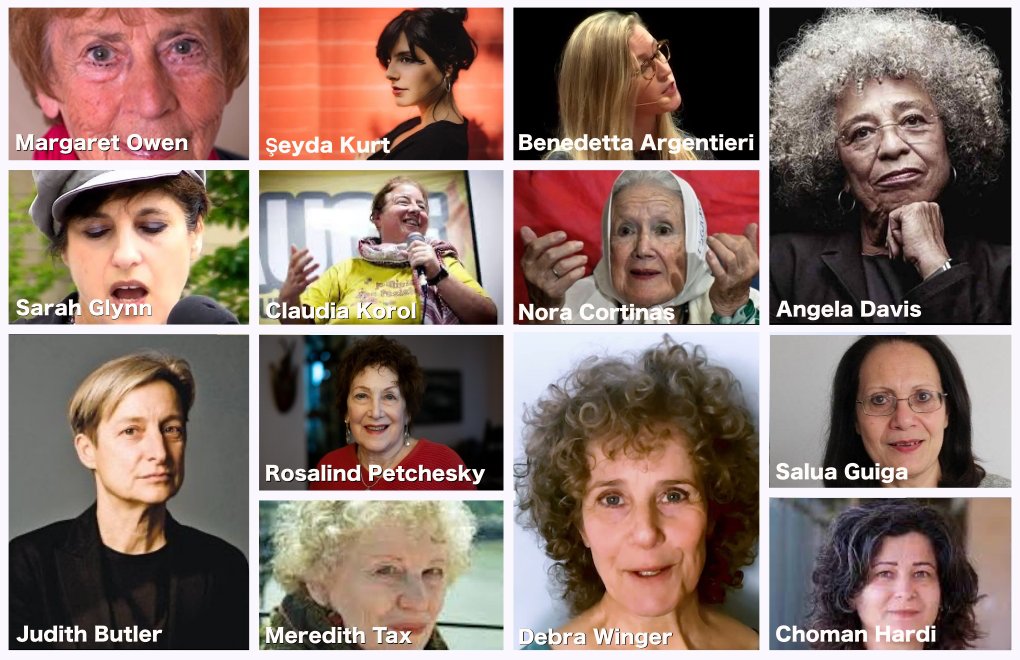Click to read the article in Turkish
Seventy-five women's organizations and individuals across the world have called on the United Nations Secretary-General and United Nations Women Commission to take action regarding Turkey's cross-border operations in Sinjar, Makhmur, and Rojava.
In the open letter the women have sent, they asked the UN to mobilize its mechanisms.
Women state in the letter that "Afrin (March 2018) and Ras al-Ayn (October 2019) are 'occupied'; Turkish armed drones permanently fly over North-East Syria, Sinjar, and Makhmour, creating an atmosphere of fear and deep insecurity; civilian infrastructure, cars, and houses are attacked without warning and people flee their land because they fear further Turkish attacks and occupation."
The full statement read as follows:
"To the UN Secretary-General,
To UN Women,
Turkey's aggression against the Kurds reached a new stage in 2017 when it started its airstrikes against North East Syria, the Yazidi homeland Sinjar, and Camp Makhmour in North Iraq, where more than 11,000 Kurdish refugees live.
Since then, Turkey has occupied the mainly Kurdish populated cities of Afrin (March 2018) and Serêkaniyê / Ra's al-'Ain (October 2019). Turkish armed drones permanently fly over North East Syria, Sinjar, and Makhmour, creating an atmosphere of fear and deep insecurity. Civilian infrastructure, cars, and houses are attacked without warning. People flee their land because they fear further Turkish attacks and occupation.
Turkey justifies its extrajudicial killings, drone attacks and military occupation operations as 'self-defence' in terms of Article 51 of the UN Charter. (...)
Suborganisations of the UN themselves regularly produce reports on the security situation in Syria as well as in Iraq. Neither North East Syria, the Yazidi people of Sinjar nor the Makhmour Refugee Camp pose a security threat to Turkey. (...)
We the undersigned do not accept the UN backing of Turkish aggression against Kurdish people in North East Syria and Northern Iraq. We reject Turkey's claim of self-defence and stress that the Turkish state is the attacker. We call on the UN to condemn Turkish aggression against the Kurds and mobilize its mechanisms to stop Turkey's cross-border attacks on North East Syria and the Kurdistan Region of Iraq / Northern Iraq."
Among the signatories are:
KONGRA STAR (Women Coordination in Rojava, The Autonomous Administration,on of North East Syria
Benedetta Argentieri, journalist and filmmaker, Italy
Susanne Bader, European Coordinator of World Women's Conference of Grassroots Women, Germany
Clare Baker, International Officer of UNITE the union, UK
Zahraa Banaho, human rights activist, West Sahara
Vicky Blake, UCU President, UK
Baroness Christine Blower, House of Lords, UK
Debbie Bookchin, journalist and author, USA
Orsola Casagrande, journalist, Basque Country
Vandana Chaudry, Associate Professor, City University of New York, USA
Louise Christian, lawyer, Honouary Vice-Chair of Haldane Society of Socialist Lawyers, UK
Nora Cortinas, co-founder of Mothers of the Plaza de Mayo, Argentina
Dr Hiba Haddadin, General Director of the Foundation for Gender Studies and Consultations, Jordan
Jean Halley, Professor, City University of New York, USA
Dr Basma Hamdi, Secretary General of the International Federation of African Women, Tunisia
Neemat Koko, Director of the Center for the Gender Studies, Sudan
Dr Carol Mann, Director of Women in War, France
Shamiran Odisho, Secretary of the Iraqi Women's Association, Iraq
Margaret Owen, O.B.E., President Widows for Peace through Democracy, UK
Julia Pascal, playwright, director, journalist, UK
Louise Regan, National Officer, Membership and Equality, National Education Union, UK
Khadija Riyadi, activist, winner of the United Nations Human Rights Prize, Morocco
Tiba Saad Abdelkarim, feminist movement Intadifi, Iraq
Rita Segato, feminist academic and Professor Emerita at the University of Brasilia, Argentina
| Article 51. Nothing in the present Charter shall impair the inherent right of individual or collective self-defence if an armed attack occurs against a Member of the United Nations, until the Security Council has taken measures necessary to maintain international peace and security. |
(AEK/TB)




